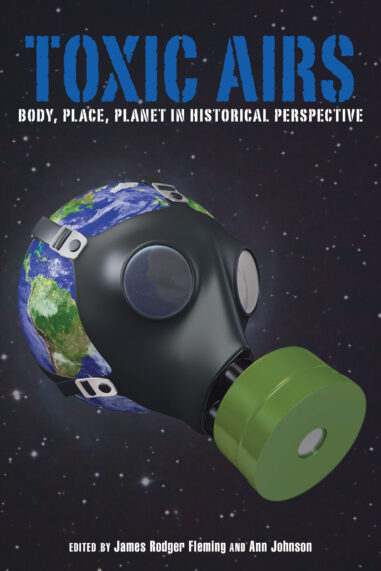Toxic Airs brings together historians of medicine, environmental historians, historians of science and technology, and interdisciplinary scholars to address atmospheric issues on a spectrum of scales from body to place to planet. The chapters analyze airborne and atmospheric threats posed to humans, and contributors demonstrate how conceptions of toxicity have evolved and how humans have both created and mitigated toxins in the air.
Specific topics discussed include medieval beliefs in the pestilent breath of witches, malarial theory in India, domestic and military use of tear gas, Gulf War Syndrome, Los Angeles smog, automotive emissions control, the epidemiological effects of air pollution, transboundary air pollution, ozone depletion, the contributions of contemporary artists to climate awareness, and the toxic history of carbon “die”-oxide. Overall, the essays provide a wide-ranging historical study of interest to students and scholars of many disciplines.



